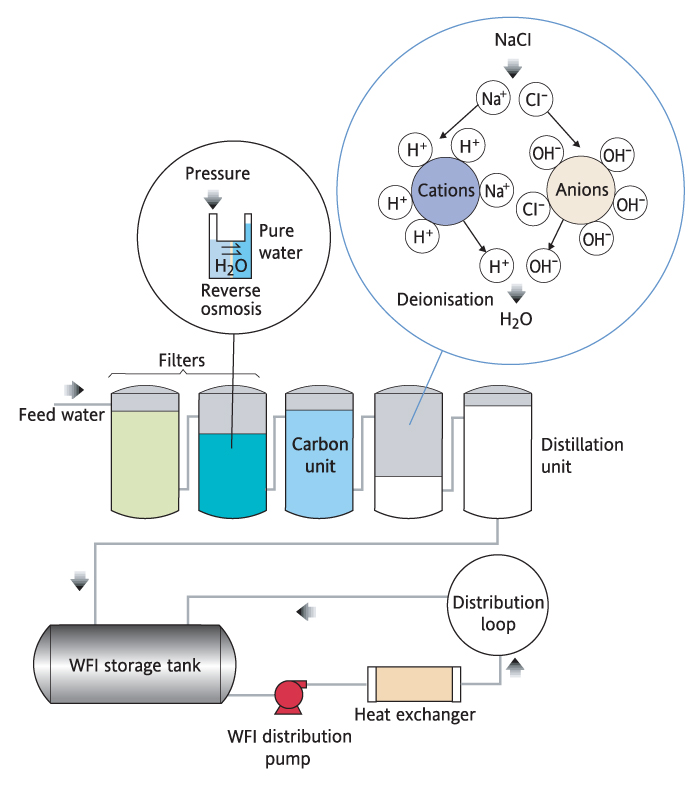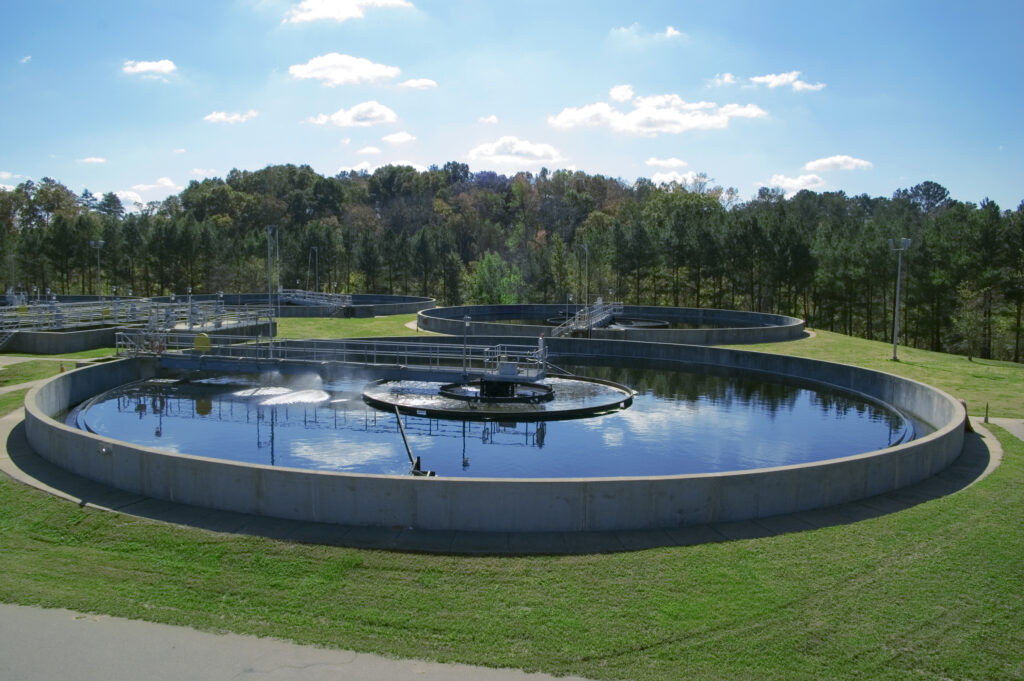Discovering Water Technology Startups: Just How They Reinvent Sustainable Solutions
Water Technology startups are becoming vital players in the pursuit for lasting remedies to international water problems. These companies take advantage of cutting-edge modern technologies to boost water effectiveness and administration. Their payments deal with pressing obstacles such as deficiency and contamination. In spite of their capacity, they encounter different barriers that could impact their success. Recognizing these characteristics loses light on the future of water sustainability and the function these start-ups might play in shaping it.
The Importance of Water Technology in Today's World
As worldwide water deficiency intensifies, the relevance of water Technology comes to be increasingly evident. Water Technology plays an important duty in dealing with the obstacles presented by reducing fresh water sources and raising need. It includes a broad variety of innovations, consisting of sophisticated filtering systems, wastewater treatment technologies, and clever watering services. These advancements not just improve the efficiency of water use yet likewise advertise lasting techniques throughout various industries, including farming, industry, and metropolitan development.
The importance of water Technology extends beyond source management. It fosters durability versus environment modification effects, such as dry spells and floodings, by supplying adaptive solutions for water preservation and management. Furthermore, it supports public health by guaranteeing accessibility to clean and risk-free alcohol consumption water. As the globe encounters expanding water-related obstacles, the integration of sophisticated water technologies is crucial for fostering sustainable development and protecting water accessibility for future generations.
Innovative Solutions From Water Technology Startups
While standard methods to water monitoring have served their function, a new age of water technology start-ups is changing the industry with innovative options (Water Technology Startups). These firms utilize innovative technologies to deal with pushing water problems, such as deficiency, contamination, and inefficient distribution. Several start-ups utilize synthetic intelligence and equipment learning to maximize water usage and anticipate need, resulting in more sustainable methods
In addition, a number of companies concentrate on developing innovative filtering systems that remove pollutants and make water secure for intake. Others check out decentralized water treatment innovations, allowing areas to handle their water sources a lot more efficiently. Moreover, some start-ups are pioneering smart watering solutions that minimize water waste in farming, promoting environmental preservation.
Instance Researches: Effective Water Technology Startups
Many water Technology start-ups have actually emerged as leaders in attending to worldwide water challenges with innovative strategies. One notable instance is Xylem, which focuses on water analytics and clever infrastructure to maximize water use and lower waste. Their remedies have actually been implemented in different municipalities, demonstrating substantial renovations in water administration performance.
Another successful start-up, No Mass Water, has established solar-powered hydropanels that extract water vapor from the air, offering lasting alcohol consumption water in deserts. Water Technology Startups. This Technology has been released in a number of countries, ensuring areas have access to clean water
AquaVenture Holdings runs a diverse profile of water-as-a-service options, dealing with water scarcity via desalination and wastewater treatment. Their jobs have actually proven vital in regions dealing with extreme water shortages, showcasing the capacity of innovative water technologies to develop lasting, favorable effects. These study highlight the transformative potential of startups in the water Technology field.
The Function of Smart Technology in Water Administration
Smart Technology plays a crucial role in modern-day water administration by leveraging IoT applications to maximize resource use. Data analytics improves performance by giving actionable insights, while remote monitoring solutions enable real-time oversight of water systems. Together, these advancements transform exactly how water is taken care of, advertising sustainability and functional effectiveness.
IoT Applications in Water
As water shortage and administration challenges increase around the world, the integration of Internet of Things (IoT) applications has actually become a pivotal solution in optimizing water resources. IoT Technology promotes real-time tracking and analysis of water supply, allowing a lot more reliable usage and monitoring. Sensing units released in different water facilities can track top quality, flow rates, and leak, providing valuable information to stakeholders. This information equips energies and customers to make enlightened decisions, reducing waste and enhancing conservation efforts. In addition, clever watering systems use IoT to optimize water shipment for farming, making sure that plants obtain the right quantity of water at the best time. Generally, IoT applications are changing typical water monitoring techniques, cultivating sustainability and strength in water source systems.
Data Analytics for Performance
Harnessing data analytics is necessary for enhancing efficiency in water management. Water Technology startups are significantly utilizing sophisticated analytics to optimize source allocation and lower waste. By examining information from various resources, these start-ups can identify patterns and patterns that educate better decision-making. As an example, anticipating analytics can anticipate water demand, permitting energies to change supply appropriately, thereby minimizing surpluses and shortages. Additionally, real-time data processing allows the prompt discovery of leaks and ineffectiveness within circulation systems, greatly lowering operational prices. Moreover, data-driven insights encourage stakeholders to carry out targeted preservation techniques, cultivating sustainable techniques. Basically, incorporating information analytics right into water management not just improves procedures however additionally advertises long-term sustainability in water source use.
Remote Tracking Solutions
While traditional water monitoring systems frequently have problem with inefficiencies, remote surveillance options are transforming how water sources are managed. These ingenious modern technologies make it possible for real-time data collection and evaluation, permitting stakeholders to check here check water high quality, flow rates, and usage patterns from afar. Making use of sensing units and IoT gadgets, remote tracking provides prompt insights that promote aggressive decision-making. This shift not only improves functional effectiveness but also advertises sustainability by decreasing water waste and enhancing source allocation. Additionally, remote surveillance systems can identify possible problems before they rise, thus minimizing the risk of contamination or framework failing. As water Technology start-ups remain to develop these solutions, the industry is poised for considerable developments in sustainable water management techniques.
Challenges Dealing With Water Technology Startups
Water Technology startups run into considerable obstacles that can prevent their development and success. Trick concerns consist of safeguarding ample financing, steering via complex governing settings, and contending in a congested market. These obstacles require calculated preparation and advancement to get over.
Funding and Investment Hurdles
Advancement in water Technology holds immense capacity for attending to international difficulties, startups in this industry frequently deal with substantial financing and financial investment difficulties. Many financiers stay mindful, perceiving the water market as high-risk because of its complex regulatory landscape and long advancement timelines. Furthermore, startups usually have a hard time to demonstrate prompt earnings, which can discourage possible backers. Traditional equity capital may ignore water modern technology, preferring industries with quicker returns, such as technology or durable goods. Moreover, protecting grants and government funding can be taxing and affordable, further making complex financial security. Water Technology Startups. Because of this, numerous ingenious water Technology startups find themselves in a precarious setting, needing imaginative financing methods to browse these monetary barriers and accomplish their goals
Governing Conformity Issues
Steering regulatory compliance is a substantial challenge for start-ups in the water Technology sector, as they need to face a myriad of regional, nationwide, and international laws. These policies often incorporate water quality standards, environmental defense laws, and safety protocols, which can differ extensively across territories. Start-ups may locate it tough to browse this complex landscape, especially when scaling procedures or going into new markets. The expenses associated with conformity can be substantial, drawing away resources away from development and item advancement. In addition, delays in obtaining necessary authorizations or accreditations can prevent growth and market access. A robust understanding of regulative frameworks is necessary for these start-ups to assure lasting procedures and prevent prospective lawful consequences.
Market Competition Dynamics
As water Technology start-ups arise in a competitive landscape, they encounter many difficulties that can restrain their development and advancement. Developed companies usually control the market, leveraging resources and experience to preserve their settings. Start-ups battle with restricted financing, which limits r & d abilities, making it tough to complete on Technology and pricing. In addition, the swiftly advancing nature of water modern technologies demands constant adjustment, more straining start-up resources. Regulative hurdles can make complex market entry, as conformity with environmental criteria is important yet pricey. Bring in experienced talent in a particular niche area presents another challenge, as bigger companies might provide more attractive work plans. These elements create a complex setting for water Technology start-ups intending to prosper.
The Future of Water Technology and Sustainability

The future of water Technology will likely concentrate on integrating man-made knowledge and data analytics to optimize water distribution and usage patterns. By taking advantage of real-time information, companies can predict scarcities and manage sources a lot more effectively. Moreover, lasting practices will certainly end up being a cornerstone of the industry, urging round economic situations where water is recycled and treated. Ultimately, the continued advancement of water Technology will be crucial in developing durable frameworks qualified of satisfying the difficulties positioned by climate modification and population growth while advertising environmental stewardship.
Regularly Asked Concerns
What Are the Secret Metrics for Examining Water Technology Startups?
Secret metrics for examining water Technology start-ups include market possibility, scalability, client procurement expenses, profits growth, technology development, governing compliance, ecological influence, competitive advantage, and team experience, all important for figuring out long-lasting stability and success.
How Can People Support Water Technology Innovations?
Individuals can sustain water Technology developments by buying start-ups, promoting for plan adjustments, taking part in community initiatives, sharing understanding about lasting methods, and advertising awareness of water problems via social media sites and neighborhood events.
What Prevail Financing Resources for Water Technology Startups?
Usual financing resources for water tech startups consist of venture capital, government grants, crowdfunding systems, angel investors, and business collaborations. These monetary methods aid assist in advancement and development in lasting water administration innovations.

Which Industries Benefit A Lot Of From Water Technology Advancements?
Industries such as farming, power, production, and municipal services profit considerably from water Technology innovations. These advancements improve water effectiveness, minimize expenses, and advertise sustainable practices, eventually adding to ecological preservation and source management.
Are There Any Type Of Regulative Obstacles Specific to Water Innovation?
Yes, water Technology deals with governing challenges, including compliance with environmental requirements, allowing procedures, and differing local policies. These complexities can impede innovation and slow the implementation of brand-new innovations in the water monitoring industry.
Water Technology startups are emerging as vital gamers in the pursuit for lasting remedies to global water problems. As global water deficiency increases, the importance of water Technology ends up being significantly noticeable. Others explore decentralized water treatment innovations, permitting neighborhoods to handle their water sources a lot more properly. An additional successful startup, No Mass Water, has developed solar-powered hydropanels that extract water vapor from the air, supplying sustainable alcohol consumption water in dry areas. Their projects have verified crucial in regions facing serious water lacks, showcasing the possibility of innovative water modern technologies to produce lasting, positive effects.